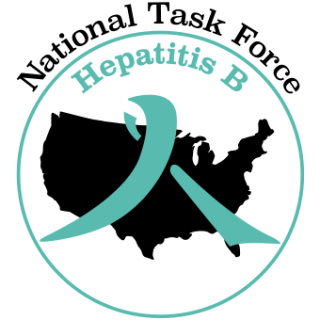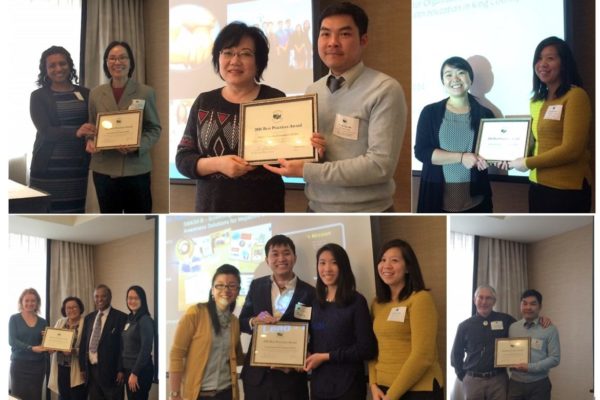Congratulations to the following organizations for their Best Practices in providing Hepatitis B outreach, education, screening, and/or linkages to care /treatment services! These recipients were awarded the 2016 Best Practices Award in Washington, DC at the face to face meeting on March 6, 2016. Keep up the great work!
Asian Pacific Health Foundation (San Diego, CA)
The Asian Pacific Health Foundation (APHF) was recognized for their ability to outreach and serve a diverse APIA community in Southern California (primarily in the Los Angeles and San Diego area), with only a “small” budget. APHF mobilizes medical and pharmacy students in addition to partnering with other organizations to provide free health screenings for the community.
International Community Health Services (Seattle, WA)
The International Community Health Services (ICHS) shared their best practices and lessons learned from the HIT-B Project, which looked into “reducing Hepatitis B disparities through health information technology.” ICHS is a FQHC servicing the Seattle, WA area. Approximately 84% of ICHS patients are APIA. From this project, ICHS staff recommended: 1) a team-based approach to addressing hep B disparities; 2) incorporating hep B population health management strategies into existing frameworks and workflows; and 3) improving systems for HBV care managment and follow-up.
Midwest Asian Health Association (Chicago, IL)
The Midwest Asian Health Association (MAHA) shared their best practices for reaching out to diverse APIA populations; most of the clients they serve are from the Chinese-speaking community in Chicago, IL. The utilization of “WeChat” was mentioned as an effective social networking / social media platform for this target population.
Hepatitis B Initiative of Washington, DC (HBI-DC) (Washington, DC)
From March 2013 – September 2014, HBI-DC screened a total of 892 Burmese patients over 29 different screening events among the Burmese-American community living in Maryland. The HBsAg+ prevalence rate was 4.4% (n=838). About 26% required vaccination. In addition, 8% had a family member with CHB and 3% had a family member with HCC. There were also 4.5% who were HCV+ (n=840). Results of the “Epidemiologic Survey of Chronic Hepatitis B and C in the Burmese Population of Maryland” was also recognized by Johns Hopkins University, Department of Medicine. HBI-DC also serves other APIA communities in the Washington, DC metropolitan area.
Asian American Health Coalition (HOPE Clinic) (Houston, TX)
The Asian American Health Coalition (HOPE Clinic) is a FQHC serving the Houston, TX area. Approximately 42% of HOPE Clinic patients are APIA. HOPE Clinic partners with local and national organizations to leverage resources, including screening vouchers for patients and free testing donated by a local hospital in Houston. The HOPE Clinic has trained providers on managing hepatitis B in-house.
Viet Nam Medical Assistance Program (VNMAP)
The graduate students that volunteer with the Viet Nam Medical Assistance Program (VNMAP) energetically role played their best practice strategies and shared their “reverse psychology” approach to outreaching to their parents and older adults to education them about hepatitis B and how to prevent and/or seek care and treatment services. The group also utilizes ethnic media (newspaper, TV, and radio) to communicate their messages with the Vietnamese-speaking population they serve.



